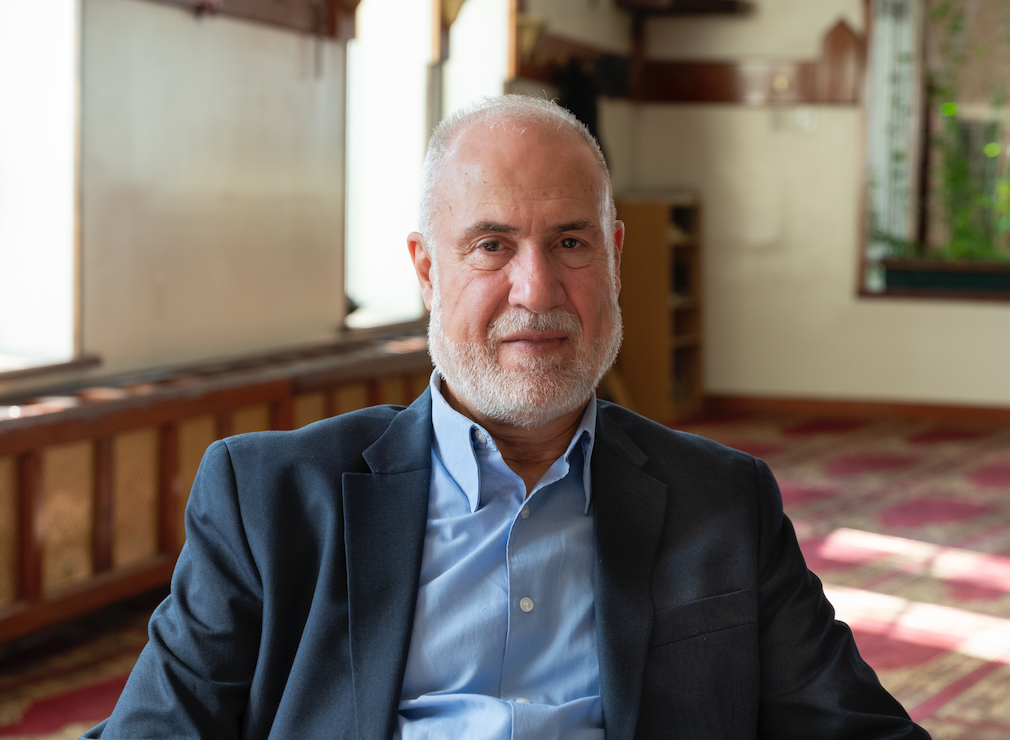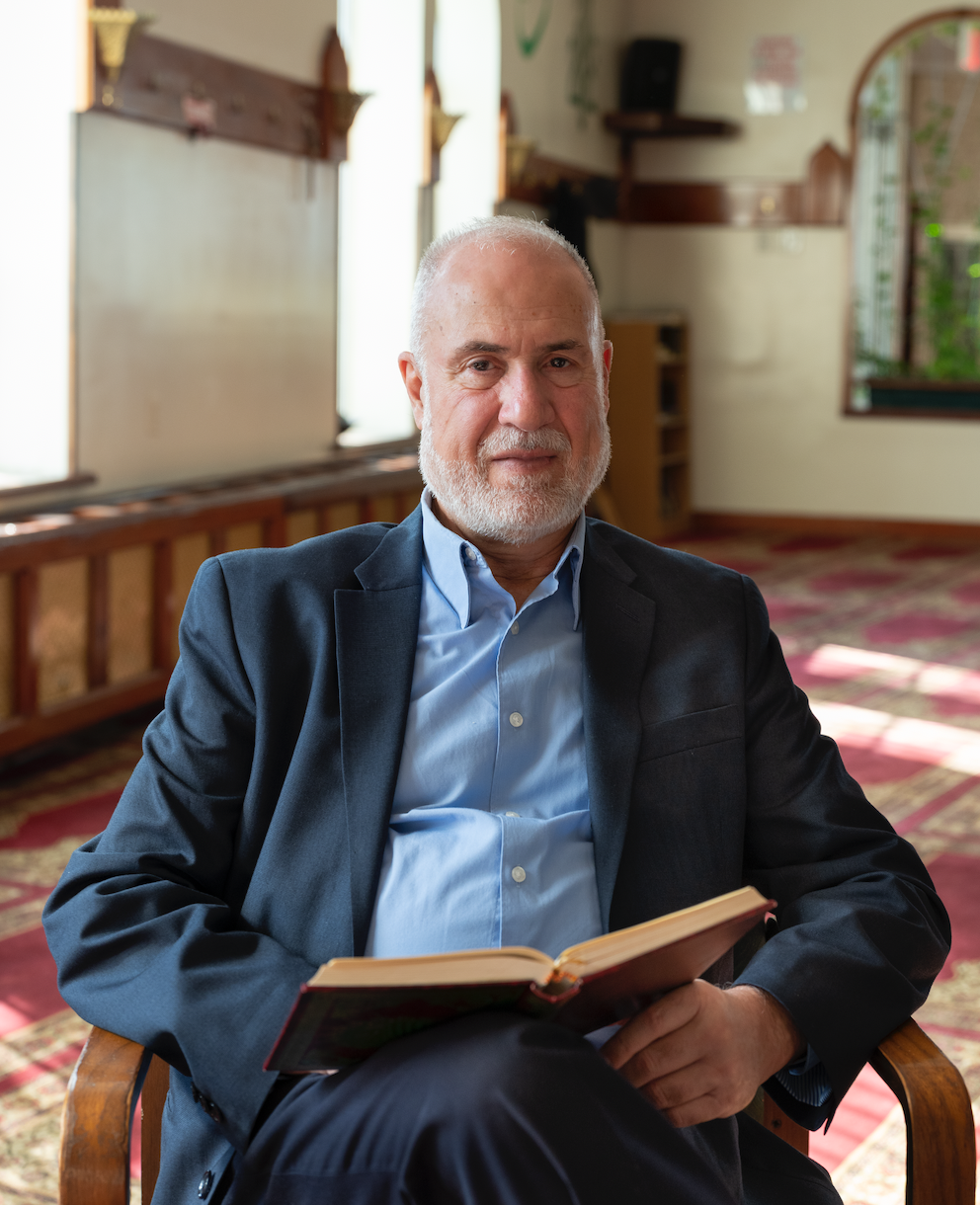Remembering Dr. Ahmad Jaber, One Of Bay Ridge’s Greatest


BAY RIDGE – One of the most prominent Muslim and Arab leaders in Brooklyn, Dr. Ahmad Jaber, who founded a number of community-based organizations and masjids after surviving loss and poverty, and someone who was an “excellent dabke dancer,” died today after a battle with liver cancer. He was 73.
“It’s hard to imagine a Bay Ridge without Dr. Jaber. His arrival in this neighborhood in 1975 started a ripple effect that lasted for generations. It’s of course true that he did so much to establish the Arab community here. But he also did so much for his fellow neighbors of all backgrounds,” Council Member Justin Brannan said.
“Whenever I needed advice or guidance or wanted to reach out to the community, he greeted me with open arms. He was a bridge-builder. A benefactor. A man of faith and compassion. He was a giant whose reputation preceded him, but his humility was unmatched. He is irreplaceable, but his constant investment in the generations after him will continue to reap enormous benefits for our city, state, and country.”
Dr. Jaber impacted the lives of many people. He was an OBGYN and personally delivered over 5,000 babies. He was Muslim and his faith was at the forefront of everything he did. He was the founder of the Al-Noor Islamic School, Beit Al-Maqdis Islamic Center, the Brooklyn Heights Interfaith Clergy Association, the National Arab-American Medical Association, and the Arab American Association of NY. He helped establish the prayer room at Lutheran Medical Center.
He leaves a lasting impact on the community. We spoke to people who loved him and knew him best. But, we also listened to Dr. Jaber himself. In 2018, he spoke for two hours recording his oral history with Liz Strong for the Brooklyn Historical Society’s Muslims in Brooklyn oral history project. You can listen to Dr. Jaber tell you his own extraordinary story in his own words here—two hours which are worth listening to.
Three days ago, Dr. Jaber posted on Facebook letting everyone know that he was diagnosed with liver cancer in April 2019. Since then, he had undergone various tests and treatments including immunotherapy, internal radiation, surgery to stabilize the spine, and external radiation to limit the spread. He said that he feels the disease is continuing to progress.
“I hesitated to write this post because I am not a big fan of social media. I also don’t want to cause any stress to anyone or beg for your prayers because I truly believe in destiny and God’s will. Nothing will happen to us except what God has ordained for us and whatever calamity afflicts us is written in a book before you are born,” he wrote. “Nobody lives or leaves this earth except by the acceptance or approval of Allah. So please do not fill my page with prayers, but instead, keep these wishes between you and your deity, and do not post it on Facebook. The best supplications are those that are unseen and kept in secret.”
He then encouraged people that knew him to share stories about him.
“A funny anecdote, a first impression, anything at all – I invite you to share it here, so that we may all reminisce about fonder times,” he wrote. “I am excited to hear all your wonderful stories so they may be cherished. God willing, they will reinvigorate my spirit and provide some enjoyment to all who read them.”
Dr. Jaber was born in a small village in Palestine called Yamoun on June 5th, 1947. When he was three years old, his father died. Dr. Jaber was the fourth child in his family, with two older brothers, one older sister, and one younger sister. They were raised by their dedicated mother who was often teased about raising her kids on her own. She used to tell them, “You will see, tomorrow, I’ll be called the mother — the mother of the teacher.” And soon enough, she was called the mother of the doctor.
Dr. Jaber remembered going to school barefoot in January, with shorts, when he was younger. In 1966, he took the high school exam and ranked number three. He was awarded a scholarship and would study medicine in Iraq.
In 1967 when the Six-Day War began, his family became separated. His brother was in Kuwait. He was in Mosul. His middle brother was in Palestine. In 1968, Dr. Jaber’s mom petitioned to have him come back to her in Palestine. Israel refused the application and as a result, he was rejected to be a Palestinian citizen.
In 1972, he graduated from Mosul University and went to Jordan to do an internship at a hospital in Amman. He was soon employed as a general practitioner and then decided to pursue his post-graduate studies. He wanted to join his best friend who he had studied medicine with, in the United States. And in order to come to the US, you had to take an exam. He took it, passed, and on June 24, 1974, came to America.
He worked at the Flushing Hospital Medical Center on a rotating internship. It was where he met his first wife Jovita from the Philippines, who was the chief resident in pediatrics. They “got hooked to each other,” he said and were married a few years later. He eventually did his residency in OBGYN in Brooklyn. He’s been living in Brooklyn since 1975.
In 1977, a Greek OBGYN that Dr. Jaber knew told him he wasn’t interested in having a private practice anymore. He told him to buy it and begin his own.
“Which I did. At that time, just $15,000. I had my office, my patients,” Dr. Jaber said. “My career started as a private OBGYN in Sunset Park.”
Back then, he only remembered two masjids in NYC. One of them was on Riverside Drive and 72nd Street in Manhattan. And one was State Street next to Atlantic Avenue where the Arab community was located — Masjid Dawoud is what it is called now. At the time, that was the masjid where he’d go for Friday prayer. Eventually, he became well known in that masjid through his contributions. He’d translate the Arabic khutbah (sermons) into English and would offer free services to the congregants, like if somebody needed medical assistance or advice.
“This is the first time I was exposed for a prayer in non-Arabic language,” Dr. Jaber said. “So it —it is an experience for me, which translated the Islamic views into practice. When you live in a homogenous community, you do not believe — or —or you say — you are not exposed for different cultural variation. So now, here it is. And you are in a completely different world. So you have a different outlook. And now you have to discuss your religion or give information about religion in a different language. So that prompted me to look deeper into my faith and study it in more depth, and… in more reasoning, rather than just accept it as it is. And since I am a physician —which, we go by the scientific information, rather than just information flowing into your brain without understanding it, that puts me back —or put me back to — to study the depth of Islam as a theology.”
Masjid Dawoud is where Dr. Mohamed Sadeia of MAS Brooklyn & Staten Island met Dr. Jaber for the first time in 1998. Every time the khutbah was read in Arabic, Dr. Jaber would offer a consult to translate it into English. At the time, Dr. Sadeia was getting ready to give the khutbah. He had planned on doing it in both Arabic and English. When Dr. Jaber offered his assistance, Dr. Sadeia remembers telling him, “Dr. Jaber, I would be doing both.”
“This man was at the forefront of everything. He was a great example of a community leader and servant. He was willing to sit and work with everybody in every sector in NYC,” Dr. Sadeia said. “And he was an excellent dabke dancer. That was shocking for me. When you see someone as accomplished as that, and then you go to a wedding and see him dancing. He was an excellent dancer and even the young people couldn’t keep up with him. Most of us excel in one area. And this man was lucky enough to excel in different aspects of life. He left a great legacy. He will be missed.”
Being a leader was something Dr. Jaber acknowledged himself in his oral history interview.
“Since I was a kid, I was a leading figure, or — although I don’t seek leadership. But you find yourself in a place where when leadership is needed, you are picked up. Whether because of your influence, because of your language, because of your intelligence. Whatever reason, somehow I landed up, wherever I go, being in that role as — as a leader. So even in —in medical school, it’s the same thing. It’s like, you know, I played sport. Volleyball, basketball. So you are on a team. And always when you are in sport people look at you,” he said. “And as a Palestinian who was in Iraq, then I am carrying my burden on my shoulder as a Palestinian who is being not accepted as a Palestinian.”
As a leader in the community and the workplace, Dr. Jaber helped establish the prayer room at Lutheran Medical Center.
“I approached the administration. I said, ‘Look, this is a public relation. We are — at least we have about 150 to 100 employees who are Muslims. And we have 20% of our patients are Muslims. So we need a place where we could have a prayer room. You have the chapel, which accommodates the Christians and the Jews. How about the Muslims? The chapel is not convenient, because the setup of the chapel is different from the prayer room. We can’t remove the chairs so that we make a prayer,'” he said. “So I convinced them to look into it. And we said, ‘We will finance it. The Muslim community will finance the place. So let’s have it.’ And I was successful in doing that.”
In 1995, he helped found the Al-Noor Islamic School. In 2000, he helped found the Arab American Association of NY. When he was asked what he thinks his legacy would be, he said, “The establishment of the Arab American Association as a voice for the Arab community is —is one of the things which I did and I am proud of. Because, the mosques, everybody’s involved… But a social service organization is rarely being recognized. Although the bulk of the work which is needed is through such an organization.”
Dr. Jaber’s janazah will take place tomorrow, Friday, December 11 from 11 a.m. to 1:30 p.m. at the masjid he helped found— the Beit al-Maqdis Islamic Center located at 6206 6th Avenue. Everyone is required to wear a mask and follow social distancing rules. He is survived by his wife Najah; his children Reem, Ramee, Ranee, Omar, Waseem, and Faris; and his grandchildren Deen, Hana, Zayn, Faisal, Leena, Elijah, Noah, Iris, and Eisa.




